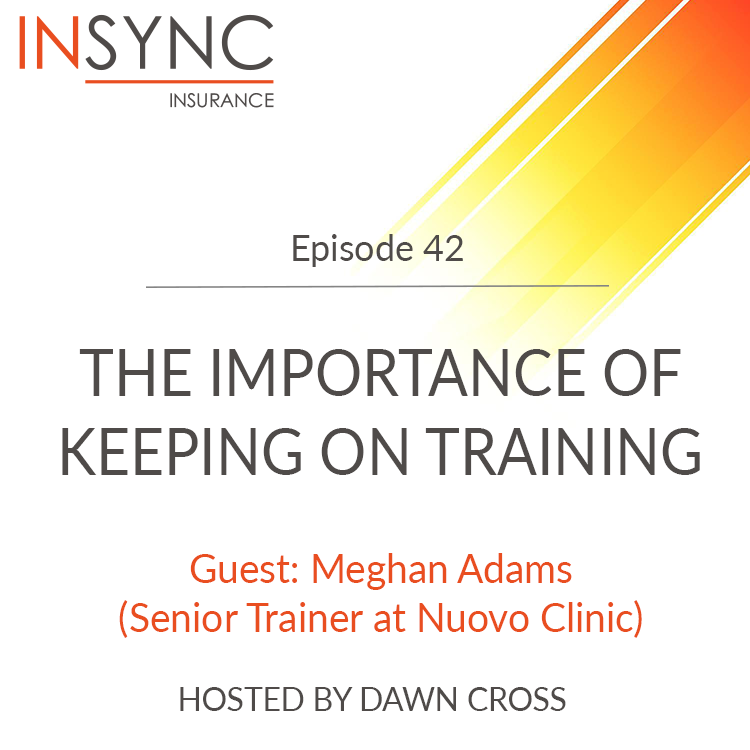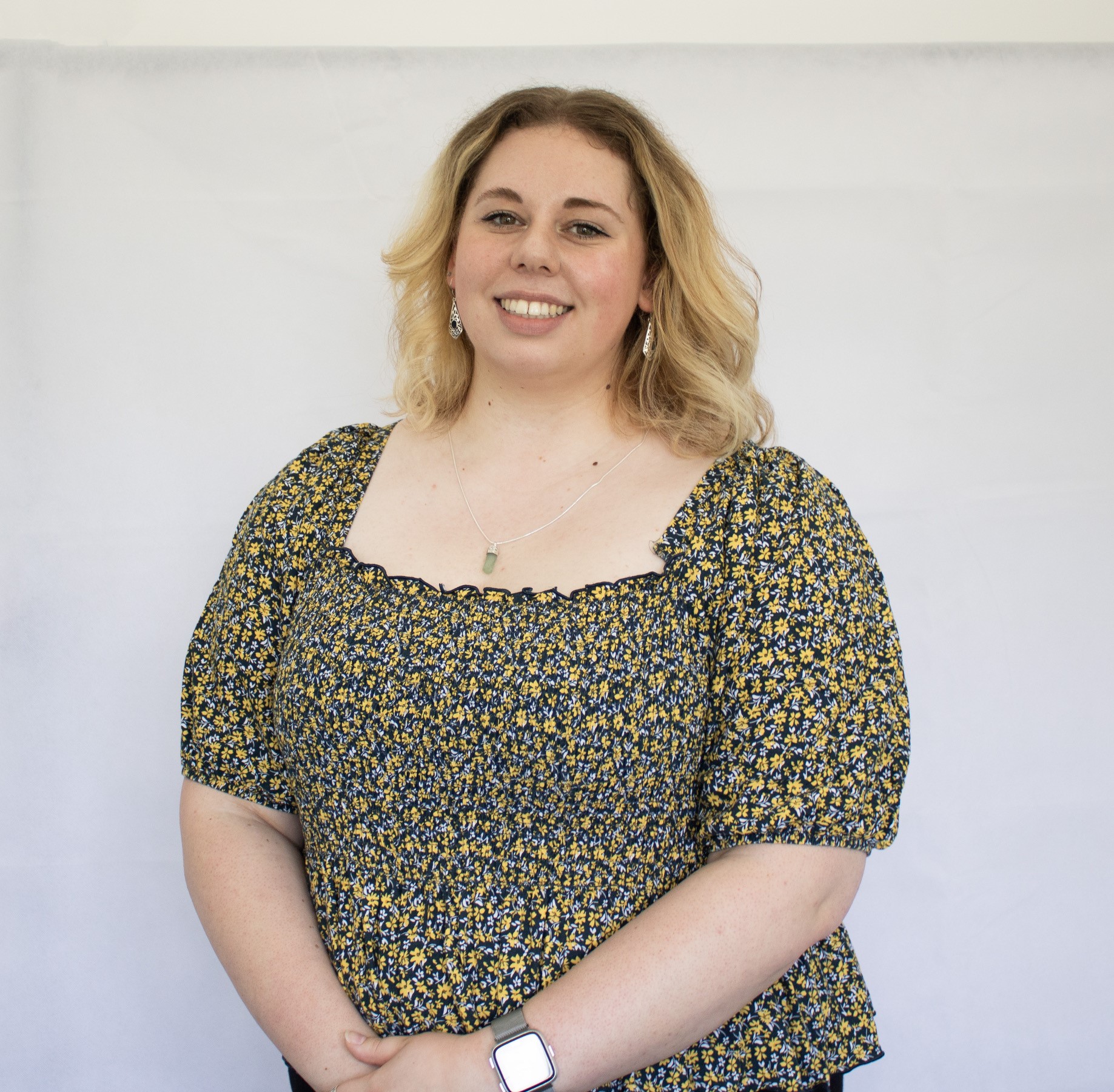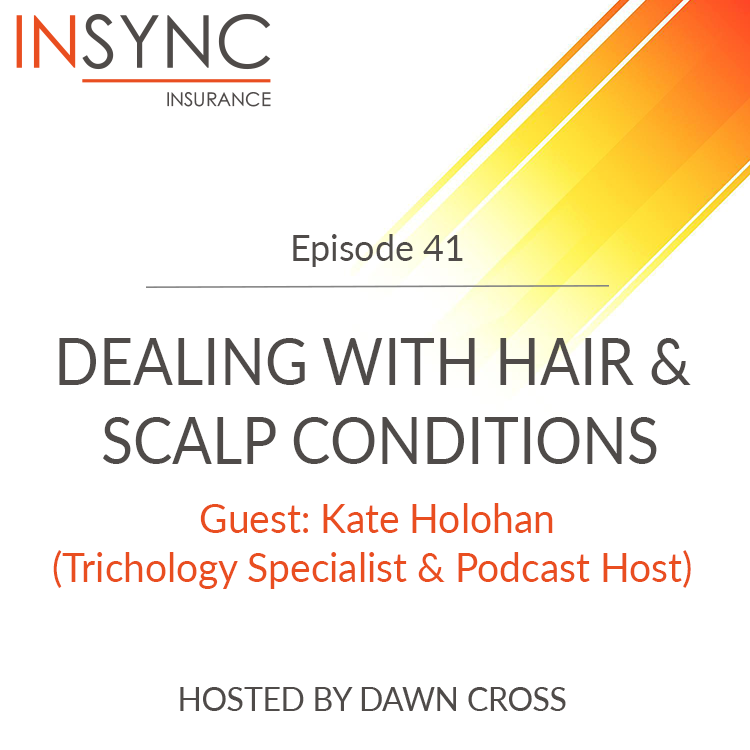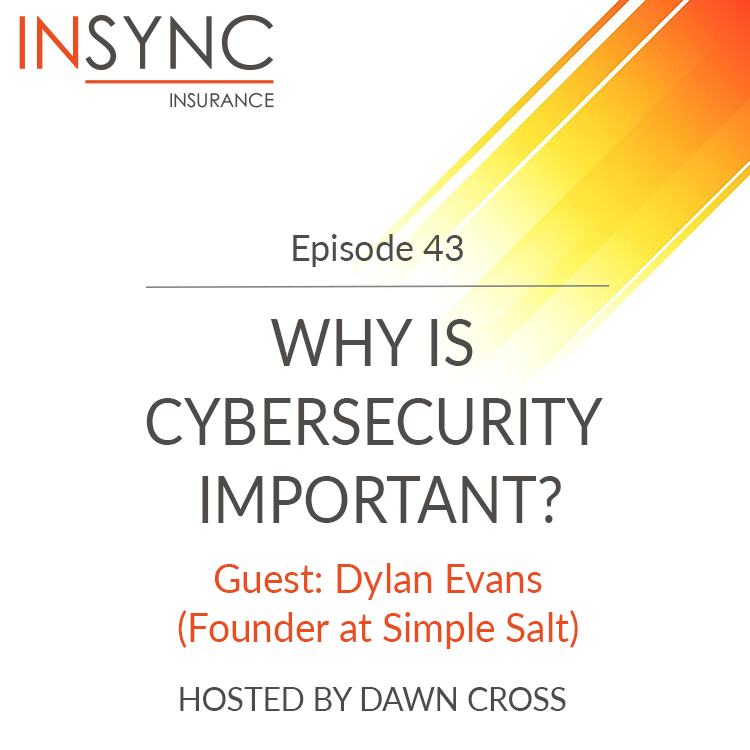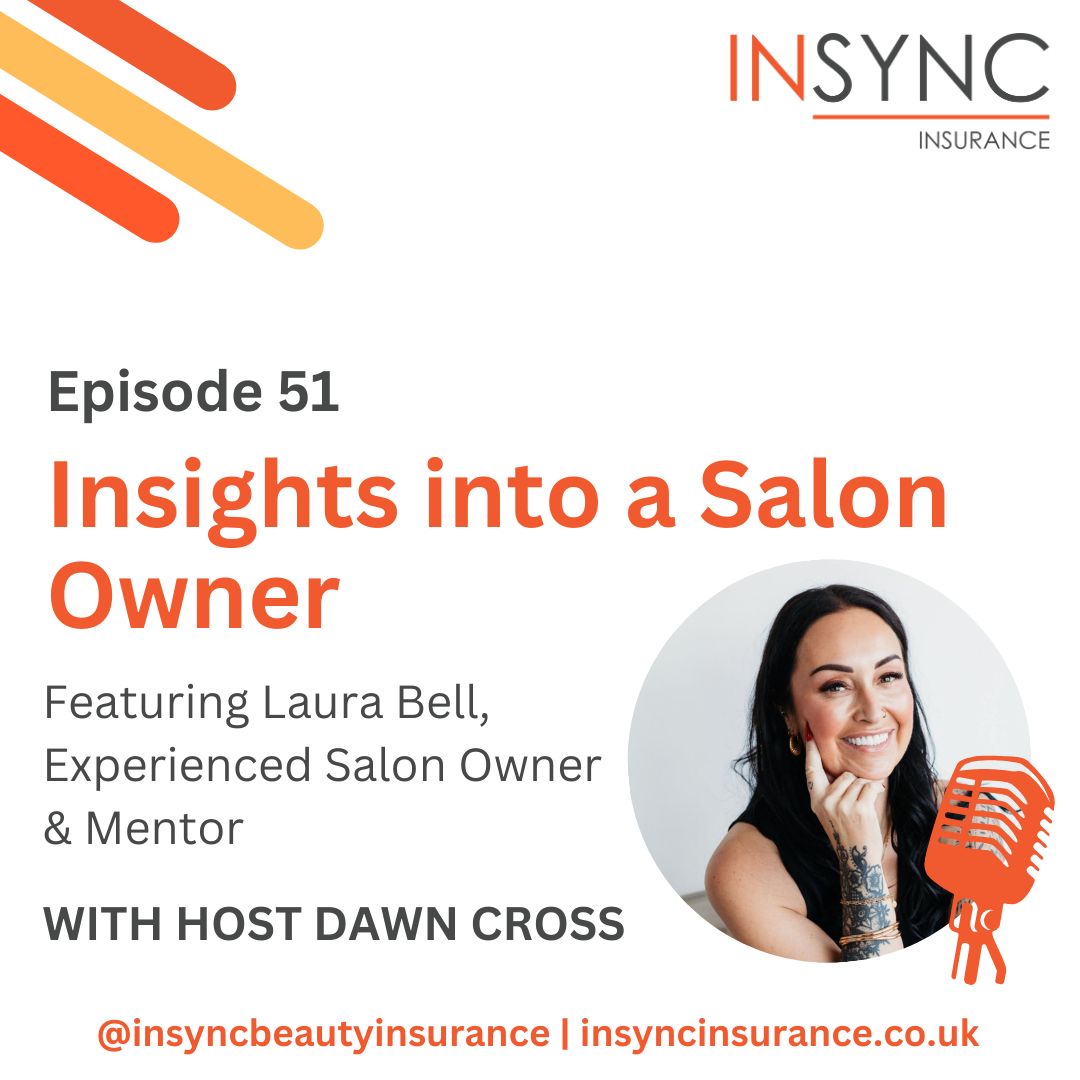Episode Transcript
[00:00:02] Speaker A: Welcome to the Insync Insurance podcast. I'm your host, Dawn Cross, and today I'll be discussing the importance of keeping on training with Megan Adams, senior trainer at the Nuovo clinic.
[00:00:13] Speaker B: Brilliant. So I could get you to start off is introduce yourself and what you do at the clinic.
[00:00:19] Speaker C: Yep. So my name is Megan, I'm the lead practitioner and the lead trainer here at Nirovo clinic. I'm a nurse prescriber.
[00:00:29] Speaker B: That's brilliant. How did you get into the industry? Like, was it something you always wanted to do?
[00:00:34] Speaker C: Yeah, I mean, I've always been interested in aesthetics and I'm a mental health nurse by background, so done that for a while and that was fun, but it was quite hard work and I really wanted to find something that worked a little bit of a better life balance for myself. I was doing lots of night shifts and lots of things like that. I had a young son at the time, so I decided to do my level seven in aesthetics with Harley Academy because I had no knowledge really, of kind of facial anatomy, things like that. And it was very different from mental health nursing to injecting people's faces. So I wanted to get a really good kind of core knowledge beforehand. So, yeah, that's what I did. But yeah, I've always had an interest in it and, yeah, just wanted to do something different and something that fitted around my life a bit better.
[00:01:31] Speaker B: That's brilliant. So how have you found it and being the lead trainer at Louis clinic?
[00:01:36] Speaker C: Yeah, it's been really good. I have worked for previous places as a trainer as well, but this is a new experience, I guess, here at Nuovo we've got an amazing training academy upstairs which is really, really lovely.
And yeah, it's going well. We've only been open since January, so we're quite new, but the training is getting more and more busy and yeah, I love it.
It helps me because I don't want to be doing the same thing all of the time, if that makes sense. It just breaks my day a little bit and it's good to meet new people. It's good to kind of talk about my experiences as well so they feel a little less kind of anxious and worried because I think, you know, you've got to share how it was for you when you first started as well and I think that's really relatable for people. But, yeah, no, I like it so good.
[00:02:28] Speaker B: That's awesome. So I guess our main question today is like, why is it so important to keep training as an aesthetics or beauty practitioner?
[00:02:37] Speaker C: So there's I think there's a number of reasons. So I, I feel that in terms of kind of safety and ensuring patient safety and compliance, that's one of the main reasons why staying updated with different treatments, different advancements that happen in aesthetics, because things change quite a lot. Things evolve and we get kind of new products, new protocols that come out and yes, trying to keep up to date with those.
And I think in terms of kind of just growth as a person and development. So it's always really important to just keep developing yourself, keep growing. I think it helps to keep you really passionate about aesthetics as well and what you're doing. So.
Yeah, many reasons, but I'd say they're kind of my main top three, I guess.
[00:03:32] Speaker B: Yeah, definitely. So I was thinking, obviously, I mean, you don't have to necessarily name any certain places to go. So, for example, for anyone that's listening who is looking at starting and getting an aesthetics, what kind of courses should they be keeping an eye out for?
[00:03:50] Speaker C: So, I mean, things are changing a lot in terms of regulations and regulations with training specifically.
And I believe that you're going to want to kind of try and get onto government courses that are registered and agreed by, with the government. So things are off call those sorts of courses because I do believe that in the future that will be mandatory, that they're going to have to be, you know, government recognized qualifications for us to proceed in a career in that sort of thing. So I would be looking for, yeah, kind of off call regulated qualifications generally, CPD. I don't think. I don't think CPD qualifications are completely terrible and never do them. But I would say that for kind of your basics, for your foundation, for your beginners to get that good foundation of knowledge, I would definitely go for a regulated qualification through the government.
And then once you've got that, you can do some, because once you've got like your basic injectable treatments, things like skin boosters, for example, they're quite a safe treatment. And as long as you've gotten in, your injection technique is correct and you know, your depths and the skin and the differences and complications, etcetera, as you get more advanced, I'd say some CPD courses you could dip into. But I think definitely for starting out, you want to regulated off core qualification.
[00:05:32] Speaker B: I would say that's definitely good. I think as well that, yeah, like you said, it gives you a good kind of nice basis, like of knowledge to start on as well. You know, I think, you know, if you've kind of went things almost backwards and you kind of did some CBD and some bits in there, but then you might just be missing having like kind of gaps of knowledge and then you're unsure about when you start your practice. So I think it's really good to have that. It's like, you know, laying good foundation for a house.
[00:05:58] Speaker C: Exactly.
[00:05:59] Speaker B: Having that sort of foundation and then you can work up on it and if you want fancy windows, you can then get fancy windows.
[00:06:06] Speaker C: Exactly that. Yeah, no, I agree.
[00:06:09] Speaker B: Yeah, that's awesome. I think as well.
I wanted to ask, you know, obviously if someone who's maybe got qualified, you know, they've done their level five or level seven depending on what kind of thing they're looking to do and, you know, what kind of courses should people like to look out for? Who wants to keep up to date? You know, would you recommend, for example, at least trying to do a CPD accredited course maybe like once a year or.
[00:06:34] Speaker C: Yeah, I mean, in terms of.
I'm not going to talk too much about medics and non medics, but if you are a medic and you have a pin that you need to keep up, I believe it's 35 hours of CPD a year. I believe so. I would say. Yeah, I'd say at least a day or so or a couple of days a year. You know, there's things you can do to keep those hours up as well because you can do training courses but you can also attend things like, you know, conferences, webinars, things like that to keep your, you know, keep your knowledge up. But I think, yeah, I would say a couple of, couple of days a year at least. If you're going to do a course on a new technique or a new treatment, I would say that you definitely want to do a day's course to get the best of. That.
[00:07:30] Speaker B: Sounds brilliant.
[00:07:31] Speaker C: I think.
[00:07:31] Speaker B: Before we wrap up then, is there any advice you'd like to give to your past self from when you started in your journey?
[00:07:40] Speaker C: Oh gosh.
I'd say believe in yourself, really, really important.
And when you are the aesthetics practitioner, just bear in mind that when people come to you, they are going to take your word for what you're saying because they think that you know everything. So just think about what you say to your clients and things like that.
And last thing I would say in terms of just training really quickly, I know we talk a lot about training for treatments and new techniques, but marketing and things like that in aesthetics at the moment is something that's really, really coming more and more to the forefront so if you can get any experience or do any kind of learning around that as well, I think it's really important if you're taking on, you know, your first business on your own, it's good to get a good basis for that as well.
[00:08:38] Speaker B: Yeah. I think it's something that's definitely forgotten about is that, you know, not only do you need to do the treatment, obviously you need to know how to run a business from, you know, making sure money is sorted. Taxes. Yeah, all the way down to marketing is sometimes forgotten about and then they're wondering where they're missing the trick and it's like, unfortunately, especially when you start out, if you're self employed, it's. You've got to do a bit of everything. There's a lot, don't you?
[00:09:03] Speaker C: Yes, there is. Yeah, absolutely, absolutely. But it's definitely worth it.
[00:09:08] Speaker B: Yeah, I reckon so. There's been loads of people that have, you know, changed lives or their lives have changed from going into aesthetics. It's still quite worth it. It's weight and gold from what I've seen personally.
[00:09:19] Speaker C: Yeah, yeah, absolutely. Absolutely.
[00:09:22] Speaker B: Well, thank you so much for coming on and chatting with me today.
[00:09:25] Speaker C: You're welcome. Thank you very much.
[00:09:31] Speaker A: Thank you to my guests today, Megan Adams, for chatting about her expertise and opinions on keeping training when working in aesthetics. If you're interested in training at the Nuevo clinic, please click the link in the description.
I have been your host, Dawn Cross, and tune in next week for another episode.
Insync is one of the UK's fastest growing insurance providers, offering comprehensive cover for SME's and the self employed across the UK. Our expert team can tailor your insurance to meet your individual business needs and compare prices. From our Lloyds of London approved partners, we offer a five star service and have been FIFO platinum trusted winners five years in a row.
